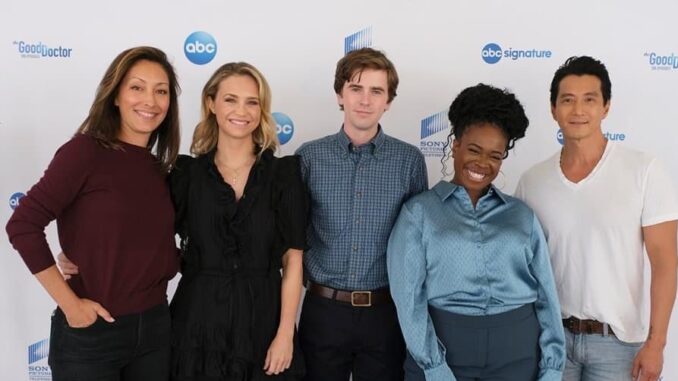
Behind the scalpel and medical brilliance of Dr. Shaun Murphy lies a deeply human story of love, heartbreak, and emotional discovery. Across seven seasons of The Good Doctor, Freddie Highmore’s portrayal of Shaun has transcended the traditional boundaries of a medical drama, turning the series into a profound exploration of how love can challenge, heal, and transform even the most analytical of minds.
When audiences first met Shaun, he was a young surgeon defined by logic and precision. His autism and savant syndrome made him exceptional in the operating room, but emotionally, he existed in a world that felt foreign and unpredictable. That all began to change when Lea Dilallo (Paige Spara) entered his life. What started as a tentative friendship blossomed into one of television’s most heartfelt and unconventional love stories — one marked by vulnerability, miscommunication, and ultimately, unconditional understanding.
Shaun’s journey with Lea was never smooth. Their relationship became a mirror for his ongoing growth as a person — learning to navigate emotions he could diagnose in others but not easily identify in himself. From awkward first dates to the profound challenges of intimacy, Highmore portrayed each step with sincerity and restraint, allowing audiences to see the quiet struggle of a man trying to bridge the gap between intellect and emotion.
One of the show’s most poignant arcs came when Shaun and Lea faced devastating loss — the miscarriage of their first child. It was a storyline that revealed an entirely new layer to Shaun’s character. For perhaps the first time, viewers saw him without answers, grappling with grief he couldn’t rationalize. His breakdown in the hospital hallway, a mix of shock and suppressed agony, became one of the series’ defining moments. Through this, The Good Doctor didn’t just explore autism; it explored universal humanity.
Over time, Shaun’s resilience reshaped the meaning of love on television. He learned that connection isn’t about understanding everything — it’s about being present, even when emotions are messy and unpredictable. His proposal to Lea, delivered with both awkward charm and earnestness, symbolized how far he’d come. The wedding that followed wasn’t just a romantic milestone — it was a testament to acceptance, growth, and the beauty of imperfection.
Highmore’s performance made these emotional beats authentic and deeply moving. His portrayal of Shaun’s love for Lea wasn’t defined by dramatic declarations but by small gestures — holding her hand during anxiety, learning to say “I love you” in his own way, and choosing to stay even when it was difficult.
Through love and loss, The Good Doctor allowed Shaun Murphy to evolve beyond the archetype of the misunderstood genius. He became a reflection of what it means to be human — flawed, loving, and brave enough to keep trying.
